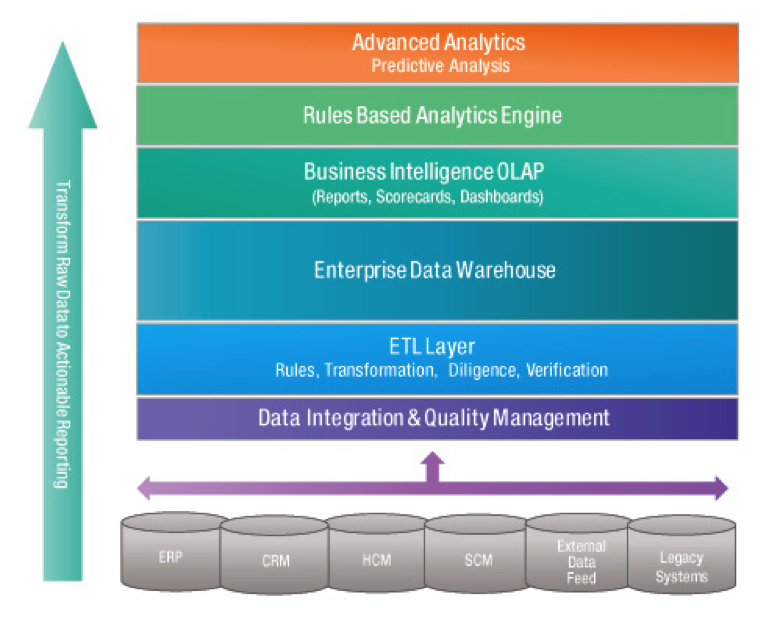All form of competitive advantage need to be leveraged to ensure success. A company’s data is one of its most valuable assets. It has the ability to provide intelligence and a competitive edge, when businesses are able to harness its power properly. Incredibly, data is also one of the most misunderstood and under-utilized asset a business has.
Business decisions that can impact the company’s future are made based on the data stored in its information systems. Surprisingly, many companies, despite technology investments do not have the ability to extract decision-making information on demand. Poor data quality, colossal growth in data generation and unstructured formats are some of the obstacles organizations face to make the data work to deliver competitive intelligence.
QSolv’s Big Data and Business Analytics solutions help clients transform raw data into timely, relevant, and accurate information that drives better decision making, and impacts the bottom line. The core of our approach is the ability to abstract a model of the real-life problem that is intuitive to use, yet sufficiently realistic to support robust decision-making. These models are used to provide insight, and to quantify the risks and benefits associated with solutions to complex business problems.

QSolv’s Business Intelligence solutions can help an organization quickly access timely, relevant, and accurate information that drives better decision making and impacts the bottom line. Business Intelligence and Data warehousing provides a solution for these problems and transforms raw data into qualitative information. It also opens the door to competitive advantage and a host of other benefits, allowing companies to substantially enhance bottom-line profitability.
We closely work with our client organizations to understand their Big Data needs as a part of our full initial consultation and assessment.





